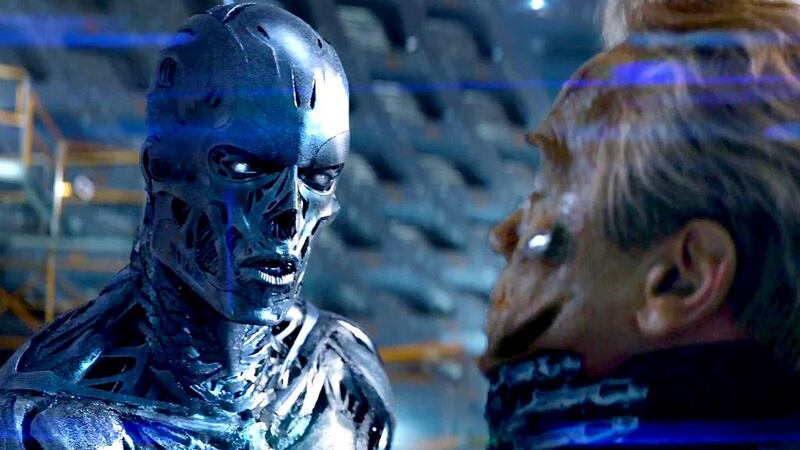LONDON // Fears of killer robots wiping out humanity are overplayed, according to some of the world's biggest brains, who believe instead that it is the old fashioned threats of nuclear war and environmental degradation that should be keeping us up at night.
In a survey of 50 Nobel Prize winners conducted by Times Higher Education and Lindau Nobel Laureate Meetings, only two identified Artificial Intelligence as among the gravest threats facing mankind, despite recent warnings by the likes of Elon Musk about the dangers associated with super-intelligent machines.
Instead, almost a quarter (23%) of Nobel laureates identified nuclear war as one of the main threats to mankind, which is unsurprising against a backdrop of US-North Korea tensions and accusations of Russian interference in the US presidential elections. "Warmonger dictators" and the risk of populist regimes and terrorists featured heavily in the list of concerns by the respondents.
Environmental issues, including over-population and climate change, were also flagged as serious risk by a third (34%) of the Nobel laureates. Respondents focused on the world's expanding population and consequent struggles with the provision of food and water, including the debate over genetically-modified products. Global warming was also frequently cited, in the wake of the US government's decision to withdraw from the Paris Accord on climate change.
In a related theme, the laureates deplored the ignorance of political leaders and their willingness to disregard scientific facts, with US President Donald Trump's dismissal of climate change as a "hoax" being an obvious example. Populism and political polarisation were identified as major threats to scientific progress by a staggering 70% of respondents, while two laureates singled out Mr Trump as the greatest threat to humankind.
Speaking to Times Higher Education, Peter Agre, who won the Nobel Prize in Chemistry in 2003 and is now based at Johns Hopkins University in Baltimore, said: "Trump could play a villain in a Batman movie – everything he does is wicked or selfish". He added that it was a particular concern that the US president "flaunts his ignorance" to appeal to Americans who are happy to dismiss the opinions of scientists.
_______________
Read more:
[ North Korea says missile launch is 'prelude' to containing Guam ]
[ G20 accord on terrorism but Trump stands alone on climate ]
[ Mark Zuckerberg and Elon Musk's debate over artificial intelligence: will robots go rogue? ]
_______________
Other threats identified by the Nobel laureates include drug resistant pathogens, inequality and even Facebook, which in June this year recorded its two billionth active user, equivalent to almost a quarter of the world's population.
John Gill, editor of Times Higher Education, commented: "This survey offers a unique insight into the issues that keep the world's greatest scientific minds awake at night.
"Some of the threats they identify are predictable: nuclear war, antibiotic resistance and environmental degradation all feature. However, the Nobel laureates also voice concerns about technological advance, changes in human interaction, the potential 'weaponisation' of Artificial Intelligence, and an age of ignorance leading to political populism and a loss of respect for scientific evidence as existential threats."
Commonly proposed solutions to these threats by the laureates included science, political commitment and greater public education.
Mr Gill added: "There is a consensus that heading off these dangers requires political will and action, the prioritisation of education on a global scale, and above all avoiding the risk of inaction through complacency."
The survey drew responses from almost a quarter of the living Nobel Prize winners for chemistry, physics, physiology, medicine and economics. Peace Prize and Literature Prize winners were not canvassed.





